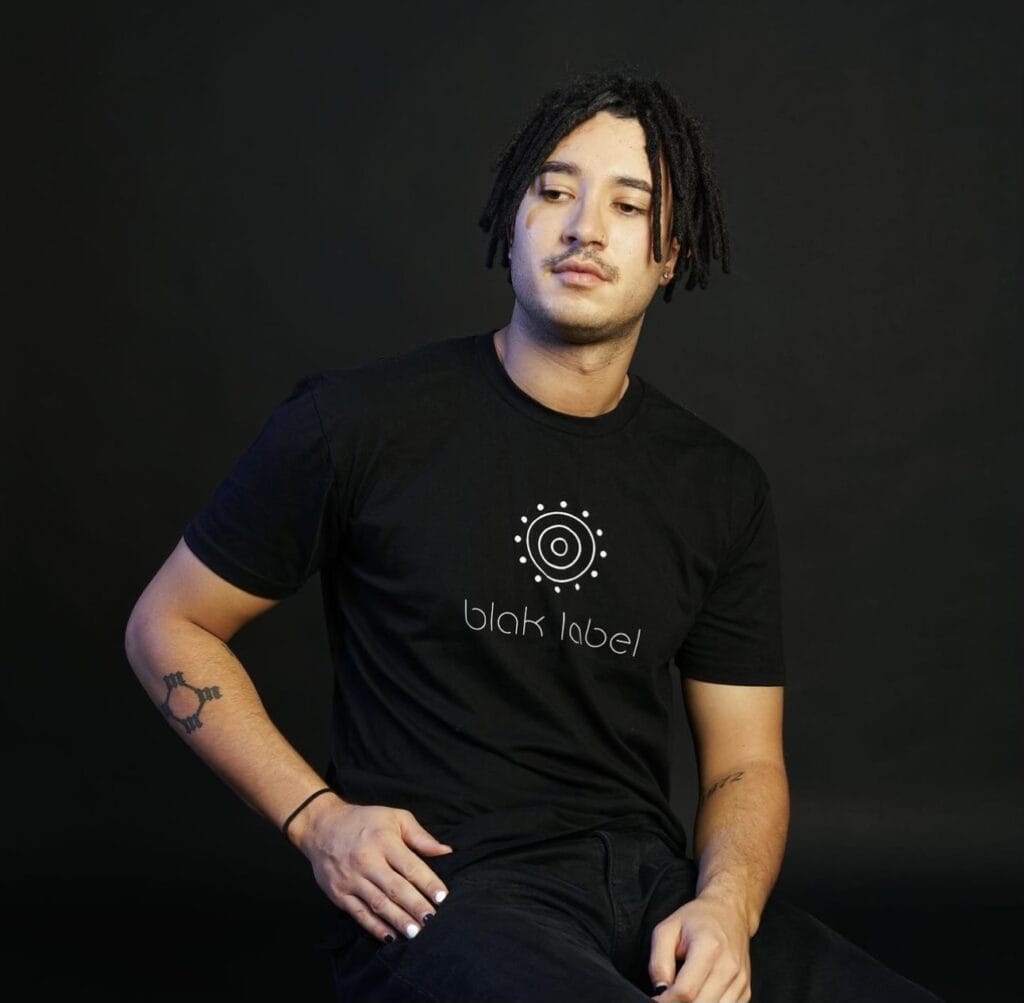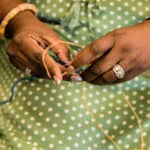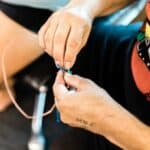From students to successful entrepreneurs: Blak Label Music members share their secrets
Aliyah Stanke
- Career & Business, Money Lessons, Study & Career

Dive into the inspiring story of Blak Label Music: An independent, First Nations-owned contemporary record label based in Meanjin (Brisbane). Founded by trio Carlos Prince, Mitharu McGoughty, and Issac Barton, Blak Label is on a mission to amplify Aboriginal and Torres Strait Islander voices, stories, and art on a global scale. In this exclusive interview, Carlos and Mitharu delve into the challenges and triumphs of building their label, sharing insights on financial milestones, budgeting lessons, securing grant funding and how to get your dream business off the ground.
Q: Can you share a bit about your background and what motivated you to establish Blak Label Music?
A (Mitharu): My name is Mitharu, and I’m a proud Kalkagal man from the Central and Western Islands of the Torres Strait. While I spent most of my upbringing in Cairns, I later relocated to Brisbane for university, where I pursued a Bachelor of Business with a focus on Finance and Economics. My early professional journey led me through roles in banking and finance. However, my passion for supporting independent and emerging artists has always burned bright. Over the past couple of years, I’ve transitioned into the music industry, driven by a desire to assist smaller artists in nurturing their talent, finding their audience, and advancing their careers. This shared vision is what brought Carlos, Isaac, and me together to establish Blak Label Music.
A (Carlos): I am a proud Nykinna man from Broome. I grew up in a single-parent household – with my mother; she raised my sister and I. We moved around quite a bit when we were younger, so being with just Mum, we tended to move with her. This traversed me around Australia and internationally. I think throughout that process, with my mother working in music, I had a lot of exposure to different bands, First Nations and non-First Nations artists. I was encouraged to go and pursue music in different formats, so growing up I learnt a few instruments. However, I found I my true passion and capabilities were in audio engineering and making beats on a laptop. I met my co-founders Isaac and Mit through a program called Careertrackers, which was a summer and winter internship program which bridged students gaining paid work experience, while they studied. Our passion for music drew us closer together and that was the beginning of Blak Label.
Q: How did being students influence your approach to budgeting and financial planning when starting Blak Label Music, and what lessons did you learn from that experience?
A (Carlos): At the time, we were second or third-year students, so we only had a limited amount of resources financially to be able to fund, not only our cost of living, but the technical costs that come with starting a business. There were many things we needed to start procuring in order to be able to do what we do, from a recording perspective. A lot of the recording equipment in the music world is not cheap; there is a bit of a price tag on a lot of things. We would pool our money together and make sacrifices outside in order to fund it, so we could build our studio, buy equipment and begin making ground on where we needed to be.
A (Mitharu): At the start we had very limited resources. We still have limited resources, but I think as we went on, we have learnt how to use the money that we have invested earlier to grow. Being able to budget has also helped alleviate some of the hurdles. Running a business includes accounting and legal services, both of which aren’t cheap. We have all come to realise these are expensive, yet essential.
Our biggest focus over the past few years has been being financial soluble and forecasting what we envision in the future. At the end of the day, we are also investing in our artists. That’s the way we can grow as a business.

A (Carlos): Definitely agree; being in the music industry is an expensive place to be, so to Mit’s sentiment about budgeting and forecasting is what we are going to need. This is how we are going to do it. It has probably been the most important thing in order to keep on track.
Q: Have there been any specific financial milestones or achievements that have been particularly gratifying for Blak Label Music, and how do you celebrate these successes?
A (Mitharu): Yeah for sure – Our first Christmas party that was fully funded by the Label. I think that’s a huge financial milestone for us, which really goes to show the position we are in now. It was also a way of celebrating with the artists. Outside of that, one of the biggest things that’s helped us become successful has been securing grant funding. We have always had projects on the horizon that we have slowly been working towards, but we require funding to do so – and not a small amount. Really going hard and sourcing this funding for at least six to eight months enabled us to finally secure two of these projects. It’s helped us do hold showcases for First Nations artists at South by Southwest in Sydney, as well as covering legal costs. These grants have also helped us promote the work of our artists – I think that in itself is a huge milestone.
A (Carlos) [nodding in agreement]: Funding sounds super daunting and challenging – because in reality, it’s very competitive and there only so many grants going around, with deadlines and timeframes. Really early on though we were hungry for it. Getting the grant at an early stage allowed us to invest further into ourselves, which also allowed us to gain additional support by recruiting more people. This helped as we had more hands on deck to support the grant writing process and to achieve more goals.
It really is important not be afraid of seeking out additional support, and looking into what grants are available. Some grants are applicable to specific states and territories and others nation-wide. For us, we were looking at First Nations Artist and Arts grants – like Mit said, we were very lucky and empowered throughout the grant process to have these additional funds.
Q: What tips would you give to other young aspiring entrepreneurs who may be hesitant to pursue their dream in the music industry due to financial concerns?
A (Carlos): If you’re starting out in a potential career or pathway for yourself, there is a lot you can do through DIY. We are in a different era of music where there’s a lot of bedroom producers, and engineer – that doesn’t require all the gear you may think you need. Thinking “what’s possible?” and “what you can afford?” and “what’s your budget?” is a great place to start, before scaling up from there. I don’t think you should be jumping into it and thinking you need the biggest mixing console, the best laptop, or anything like that. Set your expectations within your financial limitations and run with that. There’s a lot of power in DIY, and there’s a lot of power in leveraging yourself and networks.
A (Mitharu): Keep an eye out for opportunities. Whether it is in music or something else, there are always opportunities. Also, don’t be afraid to try new things – It really comes down to that concept “’fail fast, fail hard.” Always give it your all, if it doesn’t work out, try again.
We really went through two-to-three iterations of Blak Label to get to where we are now. I would never consider those failures, but more evolutions.
Let us know if you liked this article
Let us know if you liked this article




